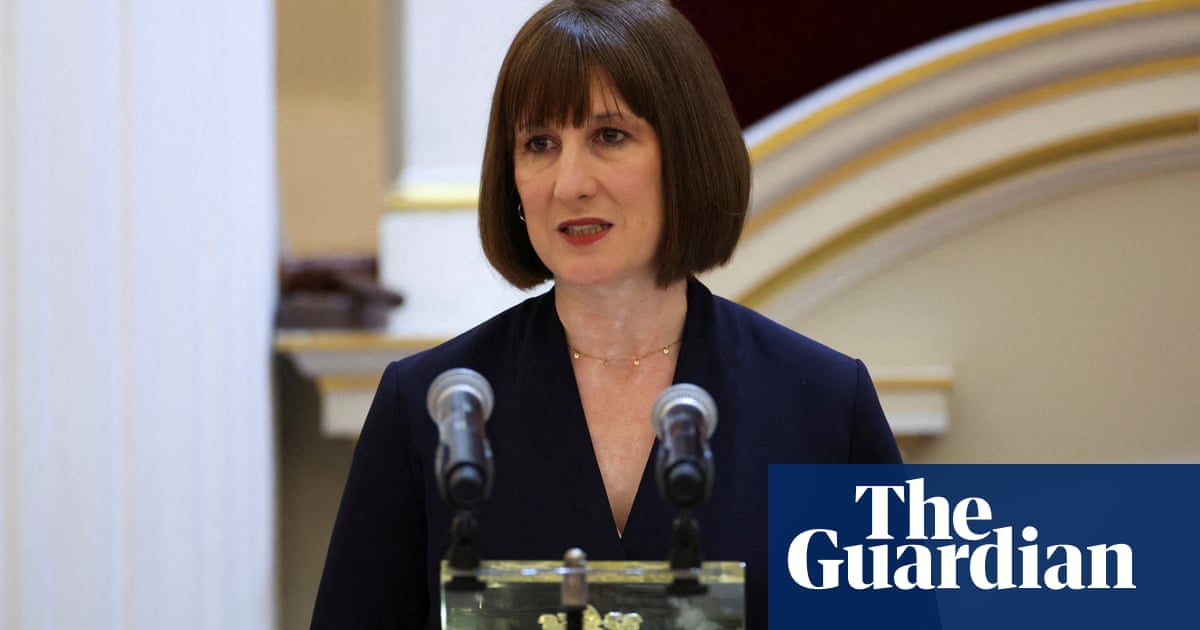Over Thanksgiving, a seat at Irena’s table in New York was empty this year.
Irena and her husband chose not to share the holiday with his brother, who is a fan of Donald Trump.
“I couldn’t bear the thought of him gloating over Trump’s victory at the table,” Irena said. They decided to avoid “the verbal pyrotechnics that would ensue when my husband pushed back”.
As the holiday season ramps up, millions of families across the US will be deciding how to tactfully navigate disagreements within family gatherings, after a divisive year in politics and a bruising presidential election campaign.
The election split Americans in half: on 5 November, Trump got 77.3m votes, or 49.9% of the popular vote, while Kamala Harris got 75m votes, or 48.4%. And according to a 2023 Pew survey, 61% of Americans say political conversations with people they disagree with are “stressful and frustrating”.
Irena and her husband opted for a “delayed friendsgiving” this week – with just her mother-in-law and two close friends – where the conversation would be less testy.
Other families plan to enact to “no politics, no religion” rules during festivities.
The wider family of Ann, a 55-year-old accountant in Pennsylvania, have “been told if they start discussing politics that my family will leave their festivities”, she said, as she and her immediate relatives are the only Democrats among an extended brood of Trump-supporting Republicans. They’ve operated on a no-political-talk deal since 2016.
But at Thanksgiving this year, conversation began to creep onto politics and Trump, she said, “and I got my coat”. Realizing Ann was serious, her sister changed the topic of discussion, so Ann stayed. “Religion and politics – we don’t discuss anymore,” she said.
Ann said her brother has fallen down a rabbit hole and posts prolifically on Truth Social. “It’s sad – he and I were very close, but I don’t know who he is anymore and he doesn’t speak to any of us.”
One in five Democrats say Trump supporters are “the enemy”, while 16% of Republicans say Harris supporters are “the enemy” – as opposed to “fellow Americans [they] disagree with politically”, an October New York Times and Siena College survey found.
For Hector, a 22-year-old in California who supports Trump, his family are split between conservatives and liberals.
Recently, some visiting relatives were “bemoaning Trump’s victory like it was the end of the world”, he said. He disliked when they said things like “the shot should have landed”, referring to an assassination attempt on the former president in July.
The gathering got “heated”, Hector said – he criticized what he saw as the “wokeness embedded within them” – so they turned the conversation to other topics.
Chet, a 67-year-old in Massachusetts, has found it increasingly tough to establish common ground with his folks.
“The problem of talking about politics with family is about information – or lack of it,” said Chet. His Trump-supporting kin, he said, tend to repeat soundbites “gleaned from Fox News” but, during discussion, aren’t too articulate about the deeper actions or motivations of Republican politicians. “It’s infuriating.”
after newsletter promotion
They now avoid political talk. It has led to a lack of connection between Chet and his brother. “I have such a hard time seeing from their view, though I do love them as family,” he said.
“I see the love and care they have for one another – and for me as well – even as the world’s looming disasters darken the skies,” Chet said, but it’s had a “crippling effect on our openness to one another”.
When Helen was growing up, in a family of Eisenhower-style Republicans, an explosive political argument resulted in her uncle staying away at Christmas time for years. So her aunt initiated a no-politics-or-religion rule.
“Trying to keep my late father in check got harder as he got older,” said Helen in Tennessee. Her tactic to defuse the situation? “I started telling him his late mother wouldn’t approve.”
For some families, inconsolable differences of values and opinions have torn relatives apart entirely.
Rita, 66, in Ohio remembers a more harmonious time before Trump’s 2016 campaign, when “we could get together for the holidays without worrying about blow ups over politics or anything”. That became more difficult during Trump’s first term, she said, and completely impossible after the attack on the Capitol on 6 January 2021.
“Now we are totally divided and some of us are no longer speaking with each other,” she said. “There is such a vast difference in what we stand for that it’s come down to not wasting time with relatives who can’t abide by the no-political-chats [rule] during get togethers.”
This year on Christmas day, Rita will be at home with just her husband, and seeing some other relatives and friends on other days – members of her chosen family of like-minded people.
But the loss of sibling connections still causes her great sadness. “I never thought I’d see the day when family wasn’t a part of my life,” she said. “But things keep happening to the point where you realize, I can’t be around this, it’s so crushing.”

.png) 2 weeks ago
11
2 weeks ago
11













































